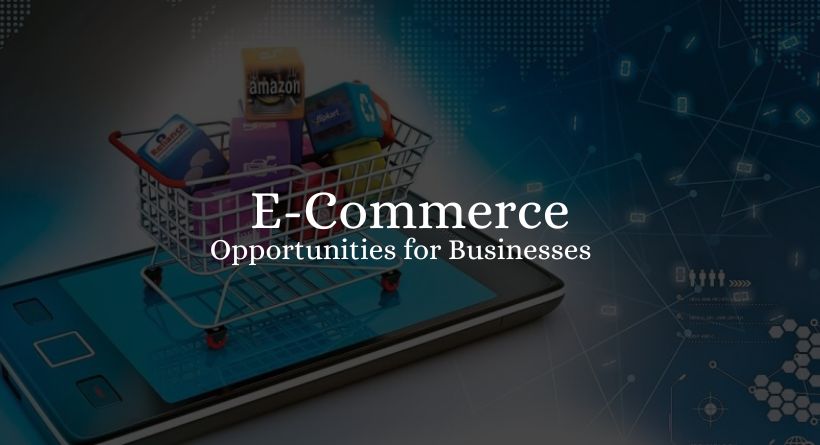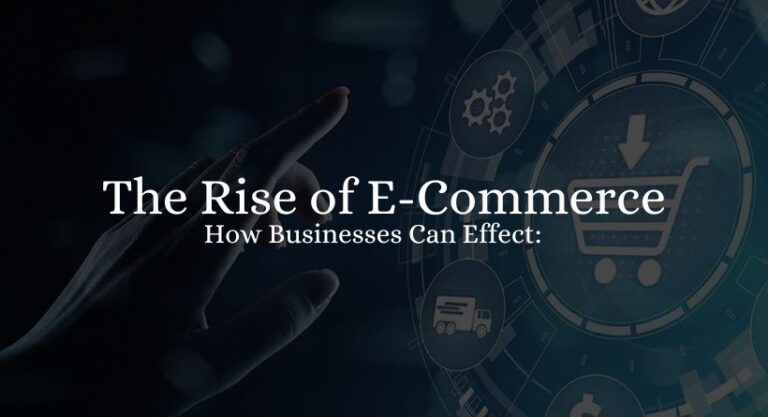In the current digital era, businesses face a daunting challenge: adapting to the rapid rise of e-commerce. This shift from traditional retail to online shopping has left many struggling to keep up. It’s a problem that can no longer be ignored, given the incredible growth and future potential of e-commerce.
But don’t worry! This blog post aims to equip you with the knowledge and strategies you need to adapt your business to this e-commerce boom. By providing an overview of the e-commerce landscape and actionable steps to capitalize on it, we promise to guide you through this digital transformation.
We understand your concerns, the difficulties in migrating to an online platform, managing logistics, or even revamping your marketing strategies for the digital consumer. By addressing these pain points, we’ll help your business not just survive, but thrive in the e-commerce era.
The Impact of E-Commerce on Traditional Businesses
E-commerce is transforming the retail industry, accelerating change at an unprecedented rate. It has redefined shopping experiences, offering unmatched convenience and a wide product selection at consumers’ fingertips. This shift has seen many customers swap store visits for online shopping.
However, this transformation presents several challenges for traditional businesses. Adapting to e-commerce requires a significant overhaul of existing systems, which can be overwhelming. The online marketplace is also highly competitive, demanding continuous innovation and optimization to stay ahead.
E-Commerce: Opportunities for Businesses

Despite these challenges, e-commerce offers immense opportunities. With online shopping, your business can reach a global audience, free from geographical limitations. Moreover, e-commerce can provide valuable insights into consumer behavior, aiding in more effective marketing strategies.
For example, consider the success of the fashion brand, Zara. Once a brick-and-mortar retailer, Zara embraced e-commerce, investing heavily in their online platform. Their seamless integration of digital and physical shopping experiences has driven significant growth, affirming the potential of e-commerce adaptation.
Steps to Adapt Your Business to E-Commerce
So, how can you adapt your business to e-commerce? Firstly, developing an effective e-commerce strategy is crucial. This should involve selecting an appropriate e-commerce platform, curating a compelling product portfolio, and focusing on exceptional customer service.
Harnessing the power of digital marketing is equally important. From SEO to social media advertising, effective online marketing can drive traffic to your e-commerce site and enhance customer engagement.
However, logistical challenges can often emerge in e-commerce, including inventory management and shipping. To overcome this, consider partnering with logistics providers or adopting e-commerce platforms that include fulfillment services.
The Future of E-Commerce
Predictions for the e-commerce industry are bullish. As technologies advance, we can expect further growth in e-commerce, driven by enhanced user experiences and new business models.
To prepare for this future, it’s crucial to continually evolve your e-commerce strategy, staying abreast of emerging trends, and embracing innovation. Remember, e-commerce adaptation is not a one-off project but an ongoing journey in the exciting world of digital retail.
May Also Like Reading: Top 4 Leadership Qualities for Success in Today’s Digital Landscape
Conclusion
E-commerce is no longer a mere choice; it’s an undeniable reality of the business landscape. It has changed the way businesses operate and interact with consumers. While the shift presents challenges, it also ushers in abundant opportunities. By adopting a sound e-commerce strategy, leveraging digital marketing, and effectively managing logistical aspects, your business can not only navigate but flourish in this digital wave.
The future of e-commerce promises continued evolution and innovation. Preparing for these changes and staying adaptable will ensure your business stays ahead of the curve. So, buckle up, embrace the digital transformation, and chart a successful journey in the e-commerce realm.







